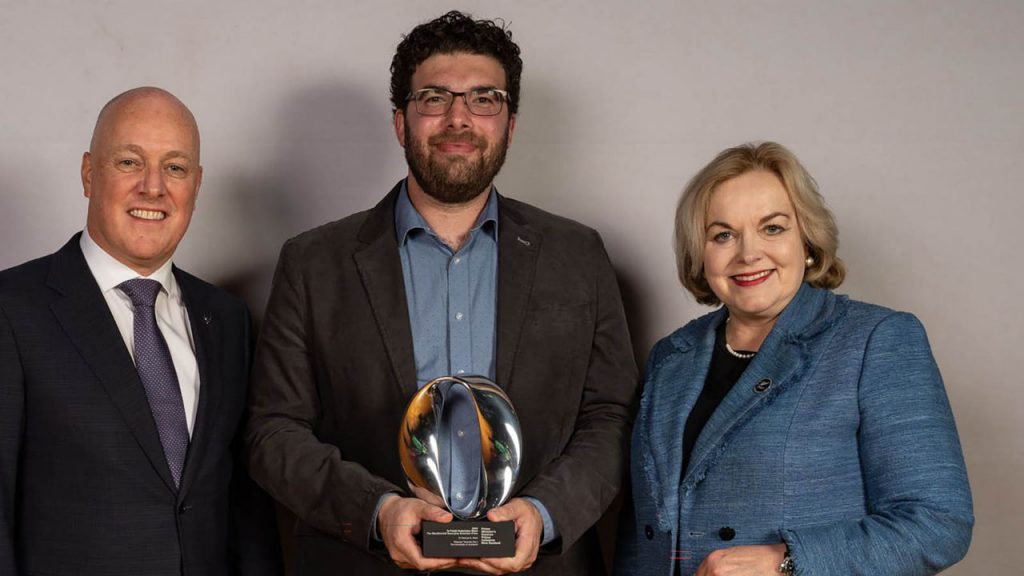Science
Cognitive Scientist Samuel Mehr Critiques New Zealand’s Science Funding

Cognitive scientist Samuel Mehr, who received New Zealand’s top science award in 2022, has issued a stark warning regarding the country’s scientific community. He argues that the current funding system, which he describes as “laughably pathetic,” is driving the nation’s brightest minds to seek opportunities abroad.
Over the last decade, New Zealand has struggled to maintain its status as an innovation hub, according to Mehr. He believes that the recent restructures and funding cuts have only exacerbated the situation, leading to a significant brain drain. This is particularly concerning for a country that once prided itself on its contributions to scientific research and development.
Declining Support for Science
The cognitive scientist’s comments come at a time when many are questioning the allocation of resources for research in New Zealand. In his view, the lack of adequate funding is not only detrimental to current researchers but also discourages emerging talent from pursuing careers in science.
Mehr emphasized that the consequences of inadequate support could be severe, stating that without change, New Zealand risks losing its most talented individuals to countries that offer better resources and opportunities. He noted that the ongoing challenges faced by researchers are “adding insult to injury” and further diminishing the country’s reputation in the global scientific community.
In response to the current budgetary constraints, Mehr called for a comprehensive review of the science funding system. He advocates for increased investment to ensure that researchers can thrive, innovate, and contribute to both local and international scientific advancements.
A Call for Action
The implications of Mehr’s statements are profound. If New Zealand is to retain its leading researchers and attract new talent, a shift in policy is essential. The sentiment among scientists in the country reflects a growing frustration with the status quo, as many express concerns over limited funding and bureaucratic hurdles that hinder their work.
The call for reform is not merely about financial investment; it is also about fostering an environment that values and supports scientific inquiry. As Mehr pointed out, the future of New Zealand’s scientific landscape depends on addressing these critical issues promptly.
In a world increasingly reliant on innovation and scientific progress, the stakes are high. The need for a robust and well-funded scientific community is clear, and the time for action is now. Addressing these challenges head-on will not only benefit researchers but also contribute to the broader societal advancements that stem from scientific discovery.
-

 Sports2 months ago
Sports2 months agoNetball New Zealand Stands Down Dame Noeline Taurua for Series
-

 Entertainment2 months ago
Entertainment2 months agoTributes Pour In for Lachlan Rofe, Reality Star, Dead at 47
-

 Entertainment3 weeks ago
Entertainment3 weeks agoNew ‘Maverick’ Chaser Joins Beat the Chasers Season Finale
-

 Sports2 months ago
Sports2 months agoSilver Ferns Legend Laura Langman Criticizes Team’s Attitude
-

 Politics4 weeks ago
Politics4 weeks agoNetball NZ Calls for Respect Amid Dame Taurua’s Standoff
-

 Entertainment2 months ago
Entertainment2 months agoKhloe Kardashian Embraces Innovative Stem Cell Therapy in Mexico
-

 World3 months ago
World3 months agoPolice Arrest Multiple Individuals During Funeral for Zain Taikato-Fox
-

 Sports2 months ago
Sports2 months agoGaël Monfils Set to Defend ASB Classic Title in January 2026
-

 Entertainment1 month ago
Entertainment1 month agoTyson Fury’s Daughter Venezuela Gets Engaged at Birthday Bash
-

 Sports1 month ago
Sports1 month agoHeather McMahan Steps Down as Ryder Cup Host After Controversy
-

 World1 week ago
World1 week agoSevere Winds Hit New Zealand, Over 100 Flights Canceled
-

 Entertainment1 month ago
Entertainment1 month agoTyson Fury’s Daughter Venezuela Gets Engaged at Birthday Bash




















